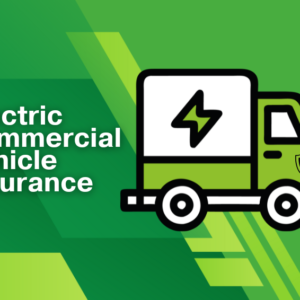Several US states mandate the purchase of SR-22 insurance, also known as a Certificate of Financial Responsibility, which is a special kind of high-risk auto insurance coverage. It is a document that is submitted to a state’s Department of Motor Vehicles (DMV) and attests that a driver possesses the bare minimum of liability insurance that the state mandates. Drivers who have received several speeding tickets, been found guilty of a DUI, or had their license suspended or revoked typically need to carry this insurance.
The goal of SR-22 insurance is to guarantee that motorists with a history of reckless driving practices have the means to cover any damages they might be responsible for in the event of an accident. It is significant to remember that it does not offer any further protection above the state’s bare minimum liability requirements. Instead, it serves as evidence that the driver is carrying enough car insurance to comply with state law.
A driver’s insurance provider will submit the SR-22 form to the state’s DMV when SR-22 insurance is necessary. The DMV will keep a copy of this document on file for a certain amount of time, often three years. The driver must continue to carry auto insurance and keep the SR-22 form in effect throughout this time. The insurance provider must inform the DMV if the driver’s auto insurance policy or SR-22 form expires, which might lead to the driver’s license being suspended or revoked.
What is SR-22 Insurance?
Some drivers in some areas are required to have SR-22 insurance, a sort of liability insurance. It’s issued by an insurance provider and submitted to the state’s DMV (DMV). This insurance only serves to reassure the state that the motorist carries the bare minimum amount of insurance protection; it does not cover damage to other people’s property or injuries to other people. Instances of DUI or other traffic violations are the most frequent reasons why someone would want this kind of insurance. The SR-22 acts as the driver’s assurance to the state that they will keep their insurance in force for the duration of the document’s validity.
Who Needs SR-22 Insurance?
Some drivers must maintain their SR-22 insurance in order to keep their licenses valid. It is usually necessary for drivers who have committed a DUI or other significant traffic infraction, and it gives the state a mechanism to keep track of a driver’s insurance coverage to stop recurrent infractions. Drivers who have been found driving without insurance or with expired insurance may also be subject to this requirement.
The majority of the time, the state will demand that a motorist maintain SR-22 coverage for a predetermined amount of time, typically three years. The motorist must keep continuous coverage during this period to prevent their license from being suspended. If the motorist receives another infraction or is involved in an accident during the requisite time, the insurance requirement may be extended in several jurisdictions.
How Does SR-22 Insurance Work?
Like other auto insurance policies, SR-22 insurance operates similarly. The person is required to buy coverage from an insurer that satisfies the minimum liability standards established by their state. The insurance provider then submits the SR-22 paperwork to the DMV. The person must keep the insurance coverage in force for the required amount of time after filing the SR-22, which is typically three to five years.
The insurance provider will tell the DMV if the person does not keep their insurance policy current or does not pay the premiums on time, and their license may be suspended or revoked as a result. It is crucial to understand that the SR-22 is merely a proof of insurance rather than a type of insurance. This means that even if the person doesn’t keep the insurance current, they’ll still be liable for any losses or injuries brought on by an accident.
This insurance is typically inexpensive, and the insurance provider will typically pay the cost. It’s crucial to keep in mind, though, that costs might differ based on a person’s driving history and the state they reside in. Uninsured motorist coverage, for example, may be an additional need in some areas, raising the price.
SR-22 Insurance Costs
The cost of SR-22 insurance will depend on the type of coverage selected and the driver’s driving record. Generally, this insurance will cost more than regular auto insurance due to the additional risk associated with drivers who require it. Additionally, some insurers may choose to not offer SR-22 insurance due to the added risk.
In most cases, this insurance is considered a high-risk policy and will cost more than regular auto insurance. The cost of the policy will also increase if the driver has additional violations on their driving record. The best way to get an accurate quote is to contact an insurance provider and provide them with your driving record and the type of coverage you are looking for.
SR-22 Insurance Benefits
While SR-22 insurance costs more than regular auto insurance, there are a few benefits associated with it.
- Carrying the insurance demonstrates that a driver is meeting their legal obligations to the state and is taking responsibility for their actions. This can be beneficial if the driver needs to appeal a license suspension or reinstate their license after a period of suspension.
- It can help a driver get lower rates on their auto insurance in the future. Many insurers will offer better rates to drivers with this insurance, as they will have demonstrated that they are a responsible driver and are willing to take responsibility for their actions.
- The insurance can also provide peace of mind for drivers who are worried about potential license suspension. Knowing that they are in compliance with the law and have the insurance coverage they need can be a great relief.
SR-22 Insurance Requirements
SR-22 insurance is a type of auto insurance that is required by the state in certain situations. Generally, this insurance is required when a driver has been convicted of a serious driving violation, such as a DUI or reckless driving. In some states, drivers may be required to have this insurance if they have too many moving violations or have been involved in an at-fault accident without insurance. Each state has its own rules regarding when SR-22 insurance is required, so it’s important to check with your local Department of Motor Vehicles. In addition, some states may require this insurance to be held for a certain period of time, usually three years, after a serious driving violation.
How to Obtain SR-22 Insurance
In order to obtain SR-22 insurance, you will need to contact an insurance provider and request the coverage. Some insurance companies may not offer SR-22 insurance, while others may have special coverage packages that include this insurance. In addition, you may need to pay a fee to have the this insurance added to your policy. It’s important to note that the SR-22 insurance is only provided by the insurance company and is not purchased by the driver.
What are the Benefits of Having SR-22 Insurance?
For those whose licenses have been suspended due to specific traffic violations, having SR-22 insurance can be advantageous. A high-risk insurance plan known as SR-22 insurance offers additional financial security to people whose licenses have been suspended and who must apply to have them reinstated. In order to demonstrate a driver’s financial responsibility and capacity to cover any damages they may do while operating a vehicle, the state frequently requires this sort of insurance.
It serves as a guarantee that the driver is financially responsible and can cover any damages they may make while operating a vehicle, which is the main advantage of obtaining SR-22 insurance. When a motorist needs to reclaim their driving privileges after an accident or a string of moving offenses, this can be extremely helpful. Drivers can demonstrate their financial responsibility with the aid of this insurance, preventing their license from being suspended for an extended length of time.
It can offer drivers extra protection and peace of mind in addition to offering financial protection. This kind of insurance frequently comes with extra protection, like uninsured motorist protection and personal injury protection. In the event of an accident or other unforeseen circumstance, this additional coverage can aid in defending drivers and their families. Drivers can feel secure in their protection in the event of an accident by having SR-22 insurance.
What is the Difference Between SR-22 Insurance and Regular Auto Insurance?
Auto insurance policies known as SR-22s are necessary for some drivers whose licenses have been suspended as a result of specific traffic violations. This kind of insurance is regarded as high-risk and is frequently more expensive than standard auto insurance. For people whose licenses have been suspended and who must reapply for them, SR-22 insurance offers additional financial security.
Regular auto insurance does not require proof of financial responsibility from drivers, whereas SR-22 insurance does. This proof of financial responsibility is typically provided to the state in the form of an SR-22 form. This document is a declaration that the driver is financially capable of covering any damages they may cause while operating a motor vehicle. Often, regular auto insurance does not call for this kind of documentation of financial responsibility.
SR-22 insurance typically includes extra coverage like uninsured motorist coverage and personal injury protection in addition to different criteria. In the event of an accident or other unforeseen circumstance, this additional coverage can aid in defending drivers and their families. Typically, regular auto insurance does not cover this kind of additional coverage.
How Can I Get the Most Out of My SR-22 Insurance?
There are a few things you can take to get the most of your policy if you must maintain SR-22 insurance. Make sure you comprehend the coverage that is offered by your policy as a first step. Uninsured motorist protection and personal injury protection are two extra coverage options that are frequently included with SR-22 insurance. Making the most of your insurance and ensuring that you are protected in the event of an accident or other unforeseen occurrence may both be accomplished by being aware of the coverage you have.
Shopping around and comparing prices from other insurance is the next step. In order to get the best bargain on insurance, it’s crucial to check rates from various insurers. This insurance is often more expensive than standard auto insurance. You may locate an insurance that gives extra savings or coverage that isn’t offered by other insurers by shopping around.
Finally, it’s crucial to routinely evaluate your policy to make sure that your coverage is still sufficient. Be sure your policy is still providing the coverage you require as your circumstances change. You can make sure you are getting the most out of your SR-22 insurance by reviewing your policy once a year.
What If I Have an SR-22 and Move to Another State
SR-22 insurance is a type of auto insurance that is often required for drivers who have been convicted of certain traffic violations, such as a DUI, or for drivers who have had their license suspended or revoked for any reason. The SR-22 is a type of financial responsibility form that is filed with a driver’s state of residence, verifying that the driver has the required amount of insurance coverage. The SR-22 is not an insurance policy itself, rather it is a document that is provided by an insurance company to the state in which a driver is registered.
When a driver has an SR-22 and moves to another state, the driver will typically need to obtain a new SR-22 in the new state. The process of obtaining a new SR-22 will vary from state to state, but in general, the driver will need to contact their insurance company in the new state and have them file an SR-22 with the state’s Department of Motor Vehicles. The driver may also need to provide proof of insurance, such as a copy of their auto insurance policy, to the DMV.
It is important to note that the requirements for an SR-22 vary from state to state. Some states may require a certain amount of liability insurance coverage, while other states may require additional coverage such as uninsured motorist coverage. It is important to check with the DMV in the new state to determine the specific requirements for an SR-22 in that state. Additionally, the insurance company may require additional documents, such as a driver’s license, before filing the SR-22.
Once the SR-22 is filed in the new state, the driver must maintain the required insurance coverage for the duration of the SR-22 filing period. The length of the filing period can vary, but is typically three years. If the driver fails to maintain the required coverage during the filing period, the insurance company will notify the DMV, which can result in the driver’s license being suspended or revoked.
Overall, if a driver moves to another state and has an SR-22, they will need to obtain a new SR-22 in the new state, as well as maintain the required insurance coverage for the length of the filing period. It is important to check with the DMV in the new state to determine the specific requirements for an SR-22 in that state, as well as to contact the insurance company to file the SR-22. Doing so will ensure that the driver is in compliance with the state’s requirements and can avoid any potential penalties for failing to maintain the required coverage.
Canceling SR-22 Insurance
Once you’ve met your financial responsibility requirements, you can cancel your insurance policy.
- To do so, you must contact your insurance provider and provide them with proof that you no longer require this insurance.
- This could include documents from the court, such as a letter of completion, or a form from the DMV that states you have met all of your financial responsibility requirements.
- Your insurance provider will then cancel your policy and return any unused premiums to you.
It’s important to remember that you must keep your SR-22 insurance in effect until you are no longer legally required to do so. If you let your SR-22 insurance policy lapse, your insurance provider will notify the DMV and your license could be suspended.
It’s also important to note that you may be required to maintain this insurance for extended periods of time, depending on your state’s laws. It’s best to check in with your insurance provider and the DMV to ensure you’re meeting all of your requirements.
Conclusion
In conclusion, SR-22 insurance is a form of insurance that must be carried in order to demonstrate that you have the legal minimum amount of liability coverage. When someone has had their license suspended or revoked, was found guilty of DUI or DWI, or both, it is usually necessary.
The person must buy a policy from an insurer that satisfies the minimal liability standards set forth by their state, and the policy must be kept in force for the appropriate amount of time. The individual’s license may be suspended or canceled if they don’t uphold the policy.
Usually, the insurance provider will pay for this insurance, although the price may differ according to the policyholder’s driving history and the state they reside in.






